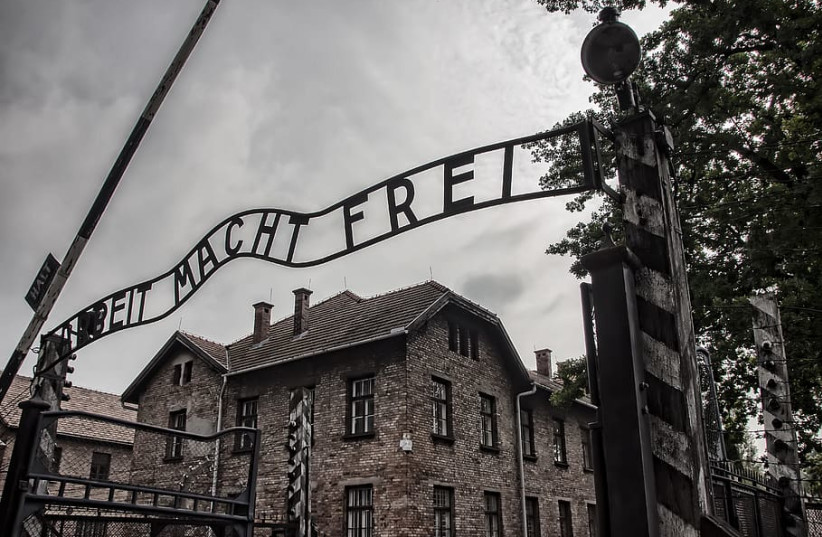In 1874, Friedrich Nietzsche wrote a monumental pamphlet titled, On the Use and Abuse of History. I re-read it every year. The lessons learned from this reading are humbling. Had he been alive today, Nietzsche may have been moved to write a follow-up, this one titled, On the Use and Abuse of Holocaust and Genocide.
The terms “genocide” and “Holocaust” are bandied about today with no real understanding. Every death is not a Holocaust. Every bad person is not a Nazi nor is every right-wing leader a Hitler.
Words are important. Throwing around the words genocide or Holocaust should not be done casually.
The term genocide was coined by Raphael Lemkin, probably in 1943, when he published the term for the first time in his work Axis Rule in Occupied Europe in 1943, in which he documents the Nazi murder of Jews. It was
Lemkin who, after escaping Poland and finding refuge in the United States, became the driving force behind the Genocide Convention. Lemkin was motivated not only by the Holocaust but also by the Armenian Genocide at the hands of the Turks in World War I. He wanted to make certain that deeds such as these would never again be perpetrated.
The term "genocide" was first used about the Holocaust
The word that Lemkin created was part Greek and part Latin. Genos is Greek for clan or family. Herodotus, the ancient Greek historian and geographer, uses genos to mean family and family line. And of course “cide” is from the Latin cidium, which means kill.
The word Holocaust has a different derivation. After WWII ended, there emerged groups of people and historians committed to documenting the atrocities that were perpetrated on the Jews at the hands of the Nazis and their collaborators.
The original term they used to describe the events was The Catastrophe. The first Yad Vashem publications in English on the Holocaust were termed Studies in the Catastrophe. Holocaust, however, soon caught on. The word Holocaust derives from the Greek word holocauston which derives from the Hebrew word olah. The Hebrew word refers to a type of sacrifice that was completely consumed by fire.

Interestingly, the original Hebrew word used to describe the Holocaust was not Shoah but "hurban". "Hurban" means destruction but it specifically connotes the destruction of the First and Second Temples in Jerusalem. Babylon destroyed the First Temple in 586 BCE and Rome destroyed the Second Temple in 70 CE.
The word "hurban" resonated in a way that connected the Holocaust to past Jewish catastrophes. Those searching for a better Hebrew term wanted to describe a unique historical event. The Holocaust was different, it was unique. The word in Hebrew as in English needed to stand on its own. It was at this stage that the word Shoah emerged as the common term in Hebrew to refer to the Holocaust.
The Genocide Convention of 1948 was established in order to prevent the atrocities that took place during the Holocaust from happening again. One hundred and fifty-two countries signed on to the treaty. The text is unambiguous. It reads: “acts committed with intent to destroy, in whole or in part, a national, ethnic, racial, or religious group.”
The Genocide Convention was established to prevent another Holocaust
ALTHOUGH THE first stage of the proceedings in the case brought by South Africa against Israel for perpetrating genocide against Gazans is now over, the case is far from over.
The “intent” was the missing element in the charge brought by South Africa. Israel was not targeting “a national, ethnical, racial or religious group.” They were, they are, targeting Hamas, a terrorist group and its leaders.
This ruling from the ICJ in the Hague referred to a “humanitarian catastrophe” taking place in Gaza but came far short of calling it a genocide because it is not genocide.
South Africa’s charge is a gargantuan misuse and abuse of the word genocide, of the Genocide Convention, and of the law. its entire strategy was rhetorical, one-dimensional, and simplistic. It went like this: If so many people in Gaza died at the hands of Israel it is plain and simple genocide.
That is not genocide, which according to the Geneva Convention must include all the following: Killing members of the group; causing serious bodily or mental harm to members of the group; deliberately inflicting on the group conditions of life calculated to bring about its physical destruction in whole or in part; imposing measures intended to prevent births within the group, forcibly transferring children of the group to another group. Intent is everything in this type of law – not the end results. In murder, manslaughter, and self-defense the results are all the same, someone dies. The difference is the intention.
South Africa has its own reasons for bringing this case. And it should be ashamed as should all those who support and promote the idea that Israel is perpetrating a genocide.
Abusers of history and the Holocaust and spewers of false rhetoric will continue on with their missions. And now the abusers of genocide have joined their ranks. Their invective and their condemnations have nothing to do with truth and justice – they are simply motivated by hatred. Jew hatred.
The writer is a social and political commentator. Watch his TV show Thinking Out Loud on JBS.
